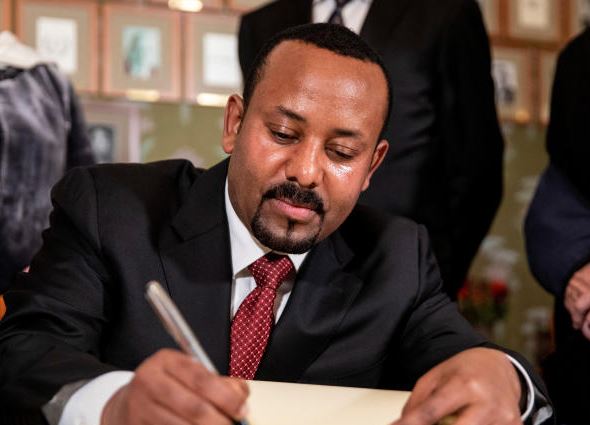
2019 Nobel Peace Prize laureate, Ethiopia's Prime Minister Abiy Ahmed, signs the Nobel Protocol at his arrival in Oslo, Norway. [Reuters]
Several posts circulating in Ethiopia claim that British newspaper The Guardian announced that the Nobel Committee might revoke Ethiopian Prime Minister Abiy Ahmed’s peace prize due to the ongoing conflict in the northern region of Tigray. However, this is false. Although The Guardian ran an opinion piece whose author suggested that the Nobel Committee should resign in “protest and defiance” against atrocities committed in Tigray, he did not write that the committee is considering revoking Abiy's prize. According to the statutes of the Nobel Foundation, it is impossible to withdraw a prize.